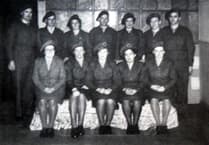But as last week saw the NHS celebrate its 72nd birthday, we decided to turn the table on the Downing Street Surgery doc and ask him about what he loves and loathes about the service.
* Hi Ed. Let’s start right at the beginning: what was it that spurred you into wanting to become a doctor?
Dr Wernick: “I actually spent two and a half months in Odstock burns unit in Salisbury, aged ten, after burning myself with petrol and it was during that stay in hospital I decided that being a doctor was the direction of travel for me.
“The reasons for it have slightly changed over time, but I’ve never stopped wanting to be a doctor.
“The sense of service and civic duty runs strong in me, and I’m very passionate about the NHS. I think that same sense of duty stretches across many people in the NHS, and also health and social care, which often doesn’t get the same level of attention.
“I can honestly say, and I hope I still feel like this in the future, that if I won the lottery, I’d still want to be a GP. I’d probably give myself slightly longer with each patient! But if I won the lottery I’d still be there.”
* What is so special about the NHS in particular?
Dr Wernick: “It’s about helping and supporting based on the needs of the individual, the community and society, rather than simply doing what people want or being driven by an individuals’ wealth. It’s got nothing to do with the money for me, it’s to do with helping and supporting, and I think that’s what the NHS offers.
“So if you’re a politician, I wouldn’t advise messing with the Queen, the NHS or the BBC. The NHS is part of the cultural fabric and identity of the United Kingdom and for some evokes the same passion as a religion.
“At the end of the day, be it a safety net or at one’s time of greatest need, the NHS offers security and comfort for us all and is quintessentially British.”
* Okay, we’ve covered what you love about the NHS. So what do you loath about it?
Dr Wernick: “Technology can help and hinder. What concerns me is how we get the most out of technology but not lose what’s best about the NHS.
“I feel that in their hour of need, people still want to have that one-on-one contact and not feel like there are barriers or blocks.
“So we want technology to facilitate but not hinder that doctor/patient relationship. And I think that’s what the custodians of the NHS at the moment need to navigate.
“To make efficiency savings, we have to utilise technology, but we need to not lose the essence of what’s important to the individual and the ethos of the NHS.
“Technology is clearly an opportunity, but how we mitigate the risks concerns me. There is a tendency towards finding better value, but you need to hold on to patient choice within that.
“It’s about getting the balance right. That’s what keeps me thinking at night.”
* We’ve heard a lot in recent years that the NHS is under threat – from collapse, from privatisation and so forth. Is it something we need to fight for as a population?
Dr Wernick: “The Bank of England has separated away from the government, and NHS England has much greater separation now than when I qualified.
“It is very difficult to truly plan such a large organisation when it is so integral and at the mercy of elections. The NHS needs protecting from the potential buffeting of the four year electoral cycle. Changing healthcare systems takes time, building hospitals takes time. I very much welcomed the move towards a ten-year plan.
“People were nervous about privatisation, but the truth is if it swings too far in that direction, people will vote. The NHS has to evolve.
“But I think, as a fundamental pillar of our society, it will endure.
“So no, I don’t worry about it. It will swing one way and then be pulled back the other way, but ultimately I do have faith it will endure.”




